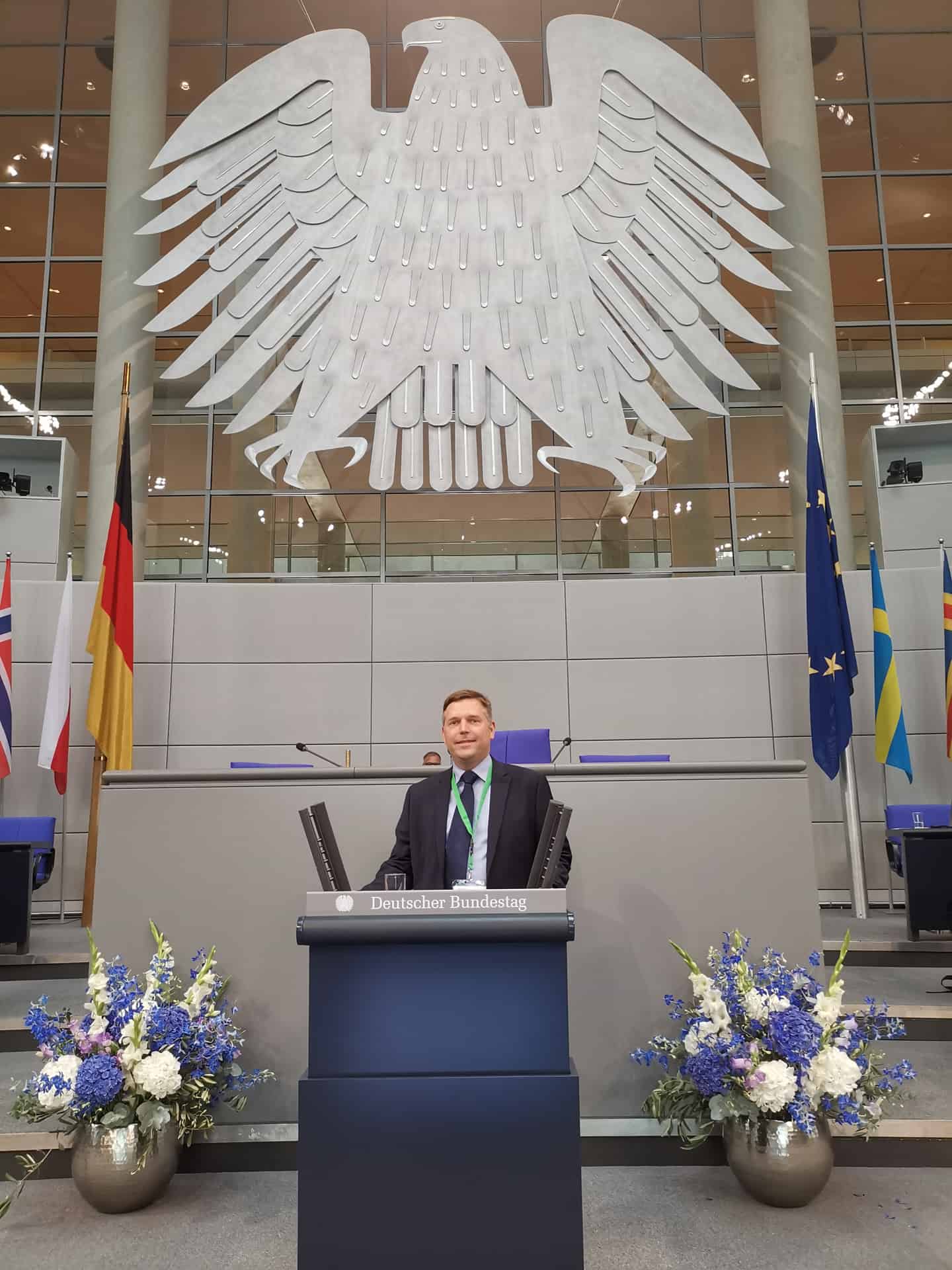© IB.SH
1 September 2023
Building a resilient region. Together
Written by Anna Gałyga
Baltic Sea region’s future at stake
Representatives of national and regional parliaments in the Baltic Sea region, ministries, the European Parliament, Baltic Assembly and the Nordic Council, pan-Baltic organisations and other experts gathered on 27-29 August 2023 at the German Bundestag in Berlin for the 32nd Baltic Sea Parliamentary Conference. The event focused on discussing the future of our region, and building its democratic, digital and maritime resilience.

Cooperation and reliable neighbourhoods were considered to be the key elements to anchoring resilience in region. In the session dedicated to strengthening the resilience of maritime ecosystems, Ronald Lieske, Director of the Managing Authority/Joint Secretariat of Interreg Baltic Sea Region, shared a wide portfolio of the Programme’s contributions. These cover project achievements in multiple thematic fields, such as adapting to climate change, pollution reduction, nutrient recycling, use and reuse of water, combatting invasive species, risk assessment and management, and incorporating local knowledge into planning and decision-making.
Two project examples of EMPEREST (removing organic micropollutants from wastewater) and Baltic Sea2Land (providing tools for authorities to harmonise land and marine planning) showcased how our projects mobilise institutions across governance levels to develop practical solutions on the ground.
The conference participants also learned about a special call for project applications handling dumped munitions in the Baltic Sea, which coincided with one of topics of the event.
#DidYouKnow
More examples of how Interreg Baltic Sea Region projects contribute to strengthening the resilience of maritime ecosystems you can find in our project library. Explore the achievements of completed projects, and dive into ongoing projects developing their new solutions.
Interreg integrated into the call-to-action resolution!
The participants of the Baltic Sea Parliamentary Conference agreed on a joint resolution, and called on governments, the Council of the Baltic States and the EU to act together. Within a document covering 65 different actions relevant for the region, expanding Interreg cross-border, transnational, interregional cooperation is stated as one of them. Interreg cooperation is considered to be one of the ways of achieving peaceful and reliable neighbourliness. In relation to that, the role of the EU Strategy for the Baltic Sea Region is highlighted as well.
In order to reinforce the importance of building social resilience, the resolution calls for support to awarding local authorities as ‘Baltic Sea Region Cultural Pearls’ for engaging communities through culture. In fact, it is the Interreg Baltic Sea Region project BSR Cultural Pearls that is behind this great initiative.
The resolution listed many more actions in other fields vital for the Baltic Sea region, including digitalisation, democratic resilience, climate change, biodiversity, resilience of maritime ecosystems and munitions resting on the bottom of the Baltic Sea.
More recent news
Grand results of the first round of small projects!
Despite the winter scenery, the results of 17 finalised Interreg Baltic Sea Region projects are in full bloom! And behind them lie two years of intensive work across borders, mutual learning and inspiration, and connections that last.
Climate-neutral future at hand for Baltic Sea region cities
Turning a city into a climate-neutral one requires knowledgeable people, thorough planning and solid financial resources. But how can cities manage this transition smoothly? The Interreg project Climate-4-Case guides cities around the Baltic Sea on how to do that right.
Designing Interreg Baltic Sea Region that belongs to everyone
10 December 2025 Designing Interreg Baltic Sea Region that belongs to everyone Written by Eeva Rantama What if the next Interreg Baltic Sea Region...
Monitoring the Programme’s progress: transnational cooperation in the making
Representatives from nine Programme area countries gathered in Berlin on 19-20 November 2025 to review the progress of the Programme’s implementation and start preparing for the post-2027 period.






